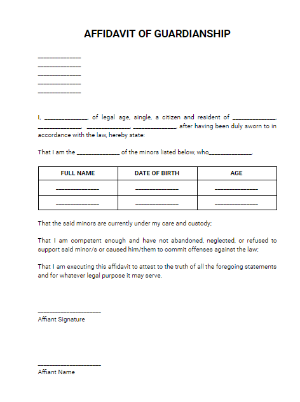- Eviction Notice Forms
- Power of Attorney Forms Forms
- Bill of Sale (Purchase Agreement) Forms
- Lease Agreement Forms
- Rental Application Forms
- Living Will Forms Forms
- Recommendation Letters Forms
- Resignation Letters Forms
- Release of Liability Agreement Forms
- Promissory Note Forms
- LLC Operating Agreement Forms
- Deed of Sale Forms
- Consent Form Forms
- Support Affidavit Forms
- Paternity Affidavit Forms
- Marital Affidavit Forms
- Financial Affidavit Forms
- Residential Affidavit Forms
- Affidavit of Identity Forms
- Affidavit of Title Forms
- Employment Affidavit Forms
- Affidavit of Loss Forms
- Gift Affidavit Forms
- Small Estate Affidavit Forms
- Service Affidavit Forms
- Heirship Affidavit Forms
- Survivorship Affidavit Forms
- Desistance Affidavit Forms
- Discrepancy Affidavit Forms
- Career Assessment - 16+ Examples, Format, Tips, Pdf Forms
- Undertaking Affidavit Forms
- General Affidavit Forms
- Affidavit of Death Forms
Career Assessment – 16+ Examples, Format, Tips, Pdf
When you’re a single parent with no immediate family members who can care for your child while you go on a business trip, authorizing a trustworthy person to be responsible is an option you may want to consider. Granting temporary guardianship is a common practice made possible with an affidavit. Unforeseen circumstances can also drive people to use a Guardianship Affidavit for the continuing care of an individual who does not have the capacity to make decisions for themselves. If you find yourself in a similar situation, read on to find out how you can make use of a Guardianship Affidavit. Read More

By Type
When you’re a single parent with no immediate family members who can care for your child while you go on a business trip, authorizing a trustworthy person to be responsible is an option you may want to consider. Granting temporary guardianship is a common practice made possible with an affidavit. Unforeseen circumstances can also drive people to use a Guardianship Affidavit for the continuing care of an individual who does not have the capacity to make decisions for themselves. If you find yourself in a similar situation, read on to find out how you can make use of a Guardianship Affidavit.
What Is a Guardianship Affidavit?
A Guardianship Affidavit is a legal document that grants a person temporary legal rights to another person in the absence of a parent or caregiver. It serves to protect individuals who are unable to take care of themselves due to age, disability, or incapacity. The ward—the person in need of special protection—will be under the temporary care of the guardian for a certain period. There are a variety of reasons as to why legal guardianship might be necessary, such as when the original parent or guardian of the ward cannot care for the ward’s well-being due to work, vacation, sickness, jail time, or other unreachable situations. The affidavit ensures that the ward’s personal and financial interests remain a priority regardless of the circumstance.
How to Create a Guardianship Affidavit
If you’ve been spending the last hour searching for law firms in the area and inquiring about their service rates, you’ll be pleased to know that you don’t need to hire a lawyer to write the affidavit for you. You can do it yourself by drafting it from scratch or filling up a form without worrying about the extra costs. Below are a few guidelines to keep you informed.
Include the necessary party information
The affidavit must identify the parties involved in the guardianship, specifically the person filing the affidavit to receive temporary authority and the ward. If multiple individuals or entities are part of the arrangement, be sure to include their full legal names in the document. The guardian’s age, place of residence, and social security number may also be necessary.
Set a start and end date
A guardianship arrangement will only be in effect for as long as the affidavit remains valid. Some affidavits do not have an end date but include terms that, when violated, will automatically terminate the arrangement. A guardianship may also terminate when the individual, who was a minor during the affidavit’s commencement, reaches the age of majority. These conditions will help you handle matters more efficiently if issues surrounding the guardianship arise.
Specify the scope of the guardianship
It’s important to list the specific duties and rights that the guardian has the authority to exercise throughout the affidavit’s validity period. Avoid ambiguous statements or general terms and conditions that may lead to misinterpretations down the road. If there are private or sensitive matters that the guardian shouldn’t have a say about, you can make this exclusion known in the contents of your affidavit.
Provide supplemental conditions for the arrangement
Since a guardianship affidavit typically concerns the ward’s medical care and treatment, it might be essential to include any special instructions regarding the patient’s current health condition, dietary restrictions, allergies, and other issues that the temporary guardian would need to take into account when making decisions for the individual.
FAQs
What are the different types of guardianships?
A guardian can have full or limited guardianship over an individual. From the term itself, full guardianship entails complete authority to make every possible decision for the ward. Although it’s risky and not very common, it can be useful when the guardian would need to make immediate decisions regarding the ward’s medical treatment, residential and educational matters, and financial management. On the other hand, limited guardianships only allow an individual to handle matters specific to what the affidavit covers.
What are the limitations of a guardianship affidavit?
Because guardianship affidavits are only temporary, the scope of the guardian’s authority is often limited. There are specific matters that the guardian has the permission to make decisions for on behalf of the ward. Violating these terms will likely lead to legal disputes, especially if it causes harm or damages to the ward or the ward’s parents or original caregiver. Thus, details of the guardianship must be explained explicitly in the affidavit.
Who can qualify as a guardian?
The law permits any competent person to be appointed as guardian. It can be the spouse, parent, adult child, or relative of the ward. Keep in mind that anyone can challenge this affidavit for whatever reason. So if you find yourself in the middle of a dispute, it would be best to talk to a lawyer about your situation for further legal assistance.
What are the rights granted to a temporary caregiver in a guardianship affidavit?
All affidavits vary depending on the purpose or objectives of the parties involved. Along with the affidavit, some instances will require the guardian to acquire other documents to support the authorization. Medical release forms and Power of Attorney papers are just some documents you’ll want to secure to meet the ward’s medical needs in the event of an emergency.
Is a guardian financially responsible?
There are several factors to take into account when it comes to the financial rights and duties of a guardian. The answer to this question would typically depend on the situation faced by the parties. But in most cases, a guardian is not obligated to use their personal finances to shoulder any expenses for the ward and may act within their discretion. However, the guardian may handle the ward’s liquid assets and manage investments if the affidavit permits these actions.
At least once in your lifetime, you might find yourself in need of a guardianship affidavit for yourself, a family member, relative, or close friend. The information above should give you an idea of what this affidavit means for the parties involved and how you may benefit from it. If you need further assistance with drafting your guardianship affidavit, make sure to consult a lawyer for proper execution.
